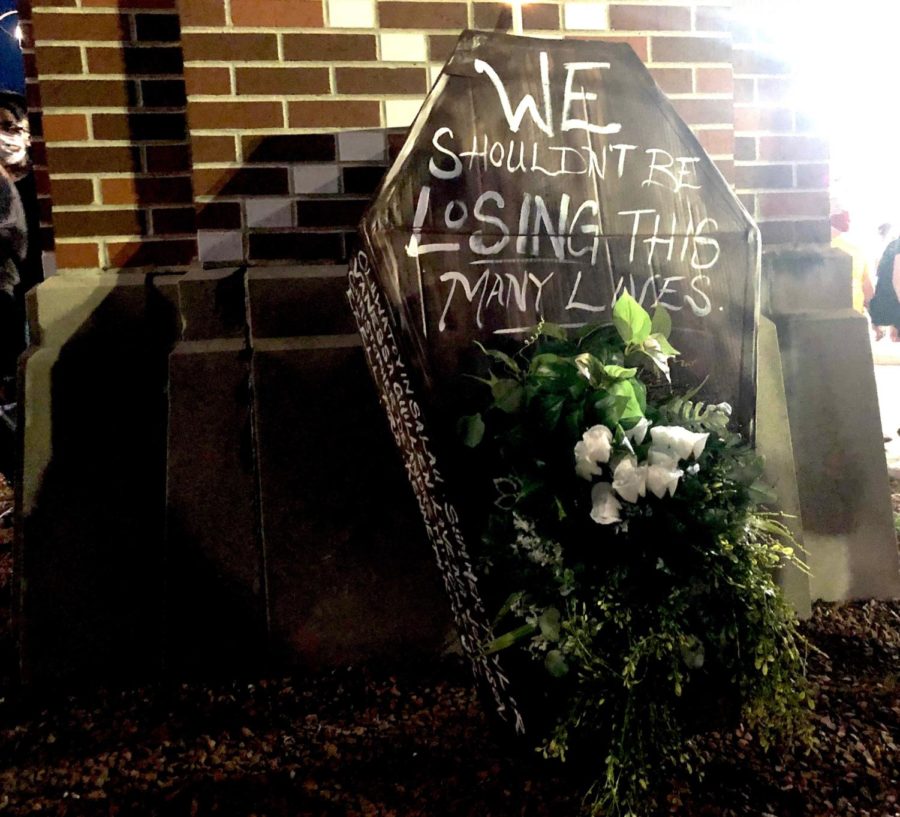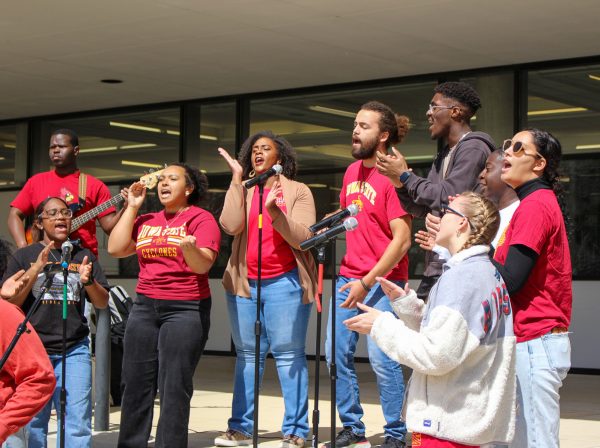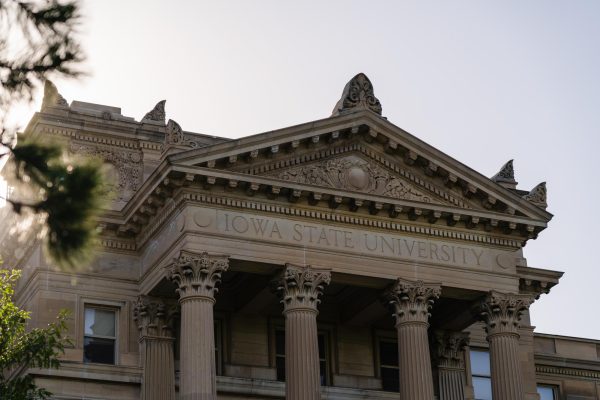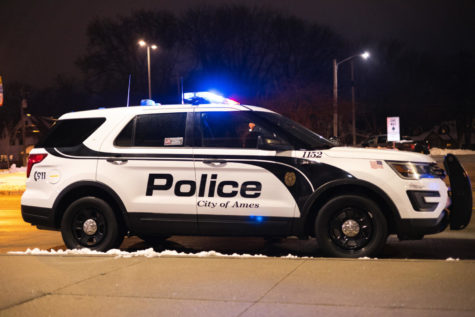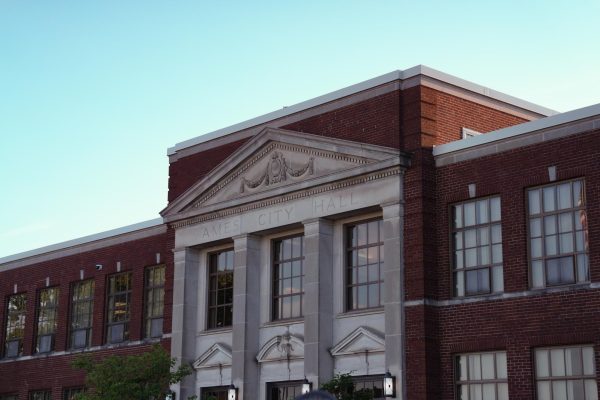‘A national issue’: Students say the murder of Tyre Nichols is not an individual problem
Students from Color of Love said the murder of Tyre Nichols by five police officers in Memphis, Tennessee, is indicative of a larger systemic issue.
“It’s disappointing but not surprising,” said Lyric Sellers, a freshman in communication studies. “I think it’s just a continuous cycle of unmet news and a combination of lack of accountability that exists, especially in policing.”
Nichols, who was murdered on Dec. 7 after being pulled out of his vehicle, lived in Des Moines, Iowa, for a period of time, according to Chelsey Fagan who spoke to KCCI.
“I think it is interesting how interconnected it all is and how we can’t really distance ourselves from the problem,” Sellers said.
Mariam Daoud, the director of operations for Advocates for Social Justice, said Nichols’ death is one of many cases of police brutality and will not be the last.
Sellers said Nichols’ death is an example of what it takes for people around the world to re-engage in the conversation surrounding police brutality that advocates have worked to keep prevalent.
This is a systemic issue that takes proactive measures to address according to Endi Montalvo-Martinez, a junior in healthcare management and co-facilitator for the advocacy department of Color of Love.
“It’s heartbreaking, but it goes to show how reactive our society is to different issues,” Montalvo-Martinez said. “Like it takes an act of violence for people to react and see the true issue.”
A systemic issue
“This is a national issue that has existed since the beginning of policing,” Sellers said.
Daoud said although this instance of police brutality did not occur locally, it is important to be aware since this is a representation of national criminal justice issues.
“There’s also sort of a representation of how Black members in the Black community across the nation are being treated,” Daoud said. “We have to be knowledgeable about these situations in every state such as Iowa.”
Sellers said because the police officers were not white, the narrative has been shifted, but she thinks this shows the issue is with the system itself and not an individual issue.
“The police officers in this situation were also people of color,” Daoud said. “They were Black men, and that just goes to show how invasive police culture can be and the behaviors of police officers beyond race.”
Daoud said Nichols is an example of how police culture reinforces brutality, power dynamics and violence rather than being true restorative justice.
“Something we like to emphasize is that it’s not the result of a broken system but a system that works according to design,” Sellers said. “When we talk about how radical it is to want to change the system of policing, people kind of get intimidated or think it’s not realistic because so many other things have to change.”
Reforming the system, according to Montalvo-Martinez, will not change anything because, at its core, it is doing what it is meant to do.
“With prison systems and police incarcerating citizens, that’s what prison systems are meant to do,”said Briana Flores, treasurer of Color of Love and a freshman in elementary education. “Once you get out, they’re not going to have any safety net for you, so you fall back into the same system. The prison system is profitable.”
Sellers said the main point is that the systems need to change entirely in order for anyone to be positively influenced by them since they were built to oppress people of color and marginalized people.
“[Changing the system] is an attempt to make people feel like they’re being thought of when we’re designing a plan for safety,” Sellers said. “When we’re talking about policing, it was created to police slaves as a way for white people to feel safe from people like us and people of color.”
Defunding the police
“I think the term defunding the police is so off-putting for so many people,” Montalvo-Martinez said. “From a very young age, we’re almost brainwashed into thinking police are a superhero or magical entity that we can just call to solve any problem.”
Montalvo-Marinez and Sellers said defunding the police is focused on the issue of police responding to things that can be resolved by preventative and restorative services in the community. It is defunding and investing in an alternative.
“We see a lot of funding going towards police departments in which they’re hiring mental health advocates when they exist in a whole different capacity,” Sellers said. “When we talk to the police about what they feel their actual purpose is outside of responding to crime, they can’t even identify things they prevent from happening.”
Sellers said some police departments are implementing programs that restorative justice advocates are calling for, but it doesn’t change the system policing is built on.
“It takes away from something that could be really powerful in preventing harm and also responding to it,” Sellers said. “It kind of waters it down by associating it with this entity that was made to oppress people.”
Creating change
Sellers said that in Color of Love, students are asked what makes them feel safe, and the answer is rarely policing. Sellers said for change to occur, it needs to be shown that more than a conversation will take place.
Montalvo-Martinez said that change does not have to be difficult, and it just takes people in power to listen and be open.
Daoud said beyond awareness of issues, there are several action items that individuals can take. Among these are contacting state legislators to ensure that police and law enforcement are held accountable, showing up for racial justice and offering support to communities like Tennessee that experience police brutality.
“I feel like we agree more than we disagree,” Sellers said. “It’s just the political connotation that people attach to it when it’s really just a movement that’s for safety.”
Flores said a lot of the disconnect comes from people not being able to see someone else’s view because they do not want to be in their shoes.
“An injustice for someone somewhere is an injustice for everyone everywhere,” Montalvo-Martinez said. “It really is a system issue that impacts the whole nation.”
Your donation will support the student journalists of the Iowa State Daily. Your contribution will allow us to purchase equipment, send our student journalists to conferences and off-set their cost of living so they can continue to do best-in-the-nation work at the Iowa State Daily.


